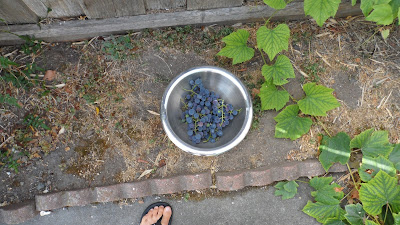While considering ways in which modern human civilization could improve itself, certain inevitable truths become obvious to me. There are many different opinions offered on this subject, some differing only subtly and others quite drastically. Regardless of a plan's ultimate goals, though, one thing must be taken into consideration by all philosophers, developers, and dreamers; a gradual implementation is the most likely to succeed in [permanently] changing any society.
All cultures and groups have an innate social inertia that resists rapid change on any scale. Moreover, ideas originating (or at least appearing to originate) from within a group are more likely to be accepted by all or most other members of that group. When people feel like they are fully included in a decision-making process, they are more likely to feel a sense of ownership and responsibility concerning the outcomes, good or bad. Full inclusion of all affected parties is more likely to lead to positive outcomes, but it also necessitates longer periods of discussion and debate, thus lengthening the entire process.
Specifically, what elements, devices, and/or methods can help humanity build a healthier, safer, more harmonious global society? Computer technology must be part of the battery of tools used to improve the operation and development of human systems. Computers should not be eschewed by the modern agrarian movement. They should be embraced by those seeking to improve the efficiency of our food production methods, and, in general, have proved and will continue to demonstrate their value in assisting human kind to store, process, and share the most valuable of all commodities, information.
We cannot ignore [or overestimate] the power of the human mind, nor can we [dismiss or] discredit, the force of our emotions, for it is the energy within us that drives and directs the use and development of technology. In other words, machines, as powerful as they may seem to be, are still only extensions of the wills of the beings responsible for the creation and operation of such tools. And in the greater scheme of the universe, sentient beings are but pieces in a larger picture, thoughts [processes] in a larger consciousness.
As we [humans] continue to evolve on multiple levels, the value of introspection becomes clearer and we also gain a better understanding of the need for doing things in moderation. The notion that "more is better" is a primitive instruction/value that was stitched into our brains (or, more precisely, into our DNA) a long time ago. It has persisted because it has continued to serve animals by fueling our "killer instincts".
Humans have also begun to realize the importance of (long-term) cooperation and collaboration (on a larger scale, beyond family groups, local tribes, and nation-states) and yet, there is a battle that seems to rage on in the depths of so many human minds. It is a struggle to balance the desire to satiate one's own selfish interests with the longing to unselfishly* improve the world for other living creatures. To achieve the latter, however, a person must be able (i.e., willing) to make personal sacrifices and accept the idea of delayed gratification, including the possibility that the individual in question may not survive to see the benefits of their unselfish acts.
*There are, of course, no completely selfless deeds. The doer is always rewarded in some way, even if it is just the satisfaction of having done a good thing.
Original Publication Date: 12-26-2002





















































